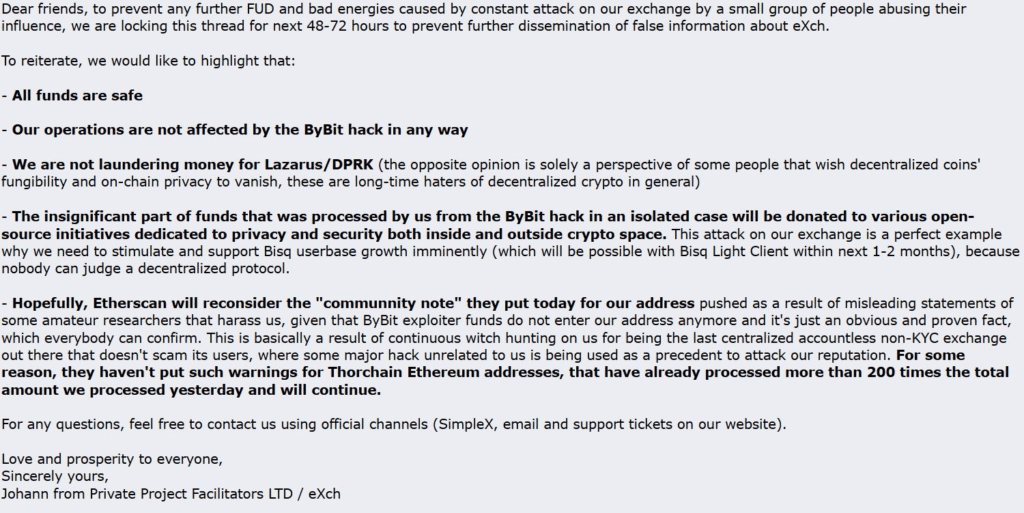Crypto exchange eXch has denied allegations of laundering funds for North Korea’s Lazarus Group. The claims surfaced after the $1.4 billion Bybit hack on Feb. 21. eXch dismissed these accusations as baseless.
The controversy grew after online investigators, including ZachXBT, suggested that stolen funds moved through eXch. Bybit has been actively tracing the stolen assets and offered a 10% bounty for recovered funds. The company urged each to cooperate and freeze attacker-linked addresses.
Each responded firmly. It stated that its platform was not used for laundering. It emphasized that only a small fraction of funds from the hack reached its exchange. The company declared that it would donate these funds to open-source security initiatives.

Bybit’s security lapses under fire amid Lazarus Group concerns
Security experts have long warned of Lazarus Group’s tactics. North Korean cyber criminals often infiltrate centralized exchanges through social engineering. Many believe that Bybit failed to take adequate security measures. Critics argue that Bybit’s negligence made the attack possible.
ZachXBT’s involvement has also drawn scrutiny. Some question his expertise and motives. Observers note that his past investigations have relied heavily on blockchain tracing, not cybersecurity analysis. Others point out that he and fellow investigator Tayvano have been victims of major hacks. Their critics suggest they project personal experiences onto their investigations.
eXch locked its public discussion channels for 48-72 hours to curb misinformation. It maintained that its platform remained secure and was not affected by the Bybit hack. The exchange accused detractors of attacking non-KYC services to undermine financial privacy.
Crypto community split over Bybit case and non-KYC exchanges
The crypto community remains divided. Some support eXch’s stance, while others call for transparency. Concerns over money laundering continue to grow, with authorities closely monitoring the situation. The future of decentralized exchanges without KYC remains uncertain as regulatory pressures mount.
The eXch team said that,“There are no other addresses on the Ethereum blockchain, aside from deposit addresses that interact with this address, that are associated with our exchange,” it added. The post was seemingly in response to allegations on social media that it had laundered over $30 million from the hack.







